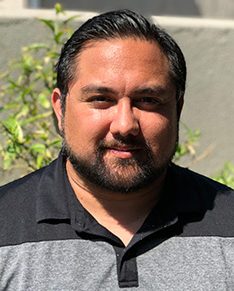Worry and rumination are compulsions


Does Pure-O OCD really exist? Is it possible for someone with OCD to have obsessions but not compulsions? Although there are people with OCD who do not engage in physical compulsions, these same people are likely engaging in mental compulsions such as compulsively worrying or ruminating. Worry is when someone persistently and repetitively thinks about something in the future, which typically causes anxiety. Rumination is when someone persistently and repetitively thinks about something in the past, which typically leads to feelings of depression. In an episode of the podcast My OCD Stories hosted by Stuart Ralph, psychologist Dr. Michael Greenberg discussed his view that this persistent and repetitive thinking is a compulsion.
Is the compulsion the disorder?
In the podcast episode, Dr. Greenberg suggested that what many people with OCD consider to be obsessions are actually normal unwanted automatic thoughts. For example, anyone might have thoughts of harming a baby after coincidentally seeing a knife and a baby. However, people with OCD will compulsively analyze their unwanted thoughts in an attempt to figure out the meaning of the thought. Dr. Greenberg pointed out that thoughts that “occur” to people are automatic and uncontrollable thoughts. However, he suggested that worry and rumination are forms of analytical thought, which must be actively engaged. In his experience, compulsive worry and rumination are strategies that people with OCD engage in to attempt to keep themselves safe. They analyze their unwanted thoughts as a means of avoiding a situation in which their worst fears are realized. For example, someone experiencing unwanted thoughts about being a pedophile will compulsively attempt to “figure out” if they are a pedophile by worrying and ruminating. However, as people with OCD already know, compulsions do not lead to lasting reassurance or solve any problems.
How do you stop compulsively worrying and ruminating?
Dr. Greenberg suggested that people recognize that the rumination and worry they engage in is an active compulsion rather than a passive obsession that happens to them. Then, he suggested that people recognize compulsions as an ineffective strategy for keeping themselves safe. Next, people with OCD should weigh the pros and cons of engaging in compulsions. He pointed out that OCD never benefits people. Once someone with OCD realizes that compulsions only lead to more suffering, they need to strongly commit to not engaging in worry or rumination. Since worry and rumination are active processes, they can be disengaged without being replaced by another process. If someone is unable to stop worrying and ruminating, he works with them to dismantle whatever processes are keeping the compulsions going.
If you are interested in learning more about Dr. Greenberg’s approach, listen to the podcast episode. If you are interested in learning how CBT with ERP, conducted via online therapy (telehealth), can address OCD, schedule a free phone consultation.

Dr. Jason von Stietz specializes in Cognitive Behavior Therapy and Sport/Performance Psychology in Torrance, CA. He provides online therapy (telehealth) by way of the Torrance office and is available for a free initial phone consultation. Dr. von Stietz works with individuals from Long Beach, the greater Los Angeles area, and the South Bay including Palos Verdes, Redondo Beach, Hermosa Beach, Manhattan Beach, El Segundo and all over California.
